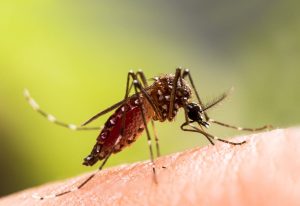Navigating the changes and discomforts of menopause can be a frustrating experience for many women. Daily life can be significantly affected by symptoms ranging from hot flashes and mood swings to sleep disturbances and vaginal dryness.
Treating those symptoms may require a mix of approaches, including medication, lifestyle adjustments and self-care strategies. This article will explore the most common menopause treatments and how they work.
Menopause treatments
To manage menopause symptoms, the best approach often combines medications with self-care and lifestyle changes. Medications can provide symptom relief by addressing hormonal imbalances and alleviating specific menopause-related concerns.
“The most common medications are hormonal treatment, selective serotonin reuptake inhibitors (SSRIs) and gabapentin,” said Dr. David Caiseda, an ob-gyn at UM Charles Regional Medical Group – Women’s Health, a practice at the University of Maryland Charles Regional Medical Center. “The hormonal treatment will treat all the symptoms related to menopause. The SSRIs will help with the hot flashes, night sweats and the mood swings. The gabapentin is a medication used for neuropathy that will help to decrease the symptoms.”
Adding in self-care practices and making lifestyle adjustments can significantly ease the discomforts associated with menopause.
“Also, patients may seek help with her symptoms from a behavioral medicine specialist as this may be helpful for the mood changes,” Caiseda said.
Medications for menopause
Menopause typically does not require treatment but a focus on alleviating symptoms and managing associated chronic conditions. According to the Mayo Clinic, treatment for menopause options may include:
Hormone therapy
Estrogen therapy is highly effective in relieving menopausal hot flashes. The dose and duration of treatment are tailored to each individual, considering personal and family medical history. For women with a uterus, progestin is combined with estrogen. While long-term hormone therapy carries certain risks, initiating treatment around menopause has shown benefits for some women.
Vaginal estrogen
Estrogens, hormones naturally produced by the body, play a crucial role in developing and maintaining female reproductive organs, among other functions. However, when the body experiences a deficiency of estrogens, replacing it can relieve the uncomfortable changes in the vagina, vulva and urethra. Restoring estrogen levels can, therefore, improve overall comfort and well-being.
According to the Mayo Clinic, hormone replacement therapy is a practical approach to addressing these concerns.
Estrogen can be administered directly to the vagina using creams, tablets or rings. This localized treatment releases a small amount of estrogen to be absorbed by the vaginal tissues, helping relieve vaginal dryness, discomfort during intercourse and specific urinary symptoms.
Some estrogen replacements include Estrace, Estring, Femring, Imvexxy, Ortho Dienestrol, Premarin, Premarin Vaginal and Vagifem.
Low-dose antidepressants
Low-dose antidepressants, specifically selective serotonin reuptake inhibitors (SSRIs), may reduce menopausal hot flashes. This option can benefit women who cannot take estrogen for health reasons or who require an antidepressant for mood disorders.
The women’s health foundation Susan G. Komen notes that common SSRIs for the treatment of menopause symptoms include:
- Citalopram (Celexa)
- Escitalopram (Lexapro)
- Fluoxetine (Prozac)
- Paroxetine (Paxil)
- Sertraline (Zoloft)
Gabapentin (Horizant, Gralise and Neurontin)
While gabapentin is primarily used to treat seizures, according to the Cleveland Clinic, it also reduces hot flashes and can be a suitable alternative for women who are unable to use estrogen therapy and those experiencing nighttime hot flashes.
Clonidine (Catapres)
Clonidine works by relaxing blood vessels, which decreases blood pressure and the amount of work the heart has to do, according to the Cleveland Clinic. Clonidine in pill or patch form may offer some relief from hot flashes.
Fezolinetant (Veozah)
“Hormone therapy is still the best medicine for hot flashes, but if you are not a good candidate for this medication, we are soon going to have a new medicine that is much more specifically targeting hot flashes with fewer side effects than previous options,” said Dr. Rebecca Dunsmoor-Su, director of menopause at the Swedish Women’s Clinic in Seattle, and co-medical director at Seattle Clinical Research Center.
Veozah (fezolinetant) was recently approved by the U.S. Food and Drug Administration for the treatment of hot flashes for women in menopause. This is the first drug treatment of its kind, and represents a viable option for those who are not able to receive hormone therapy. This hormone-free medication blocks a brain pathway in temperature regulation, making it a viable option for treating hot flashes.
Self-care and lifestyle changes
In addition to medical interventions, self-care and lifestyle changes can be important in managing menopause symptoms, particularly hot flashes. These proactive steps can help women find relief and enhance their well-being.
Here are some recommendations for maximum impact:
Regular exercise
For most women in good health, the U.S. Department of Health and Human Services recommends engaging in moderate aerobic activity for at least 150 minutes per week or vigorous aerobic activity for at least 75 minutes per week, according to the Mayo Clinic.
Sufficient sleep
“Many women experience sleep problems during perimenopause, the period of time before menopause when hormone levels and menstrual periods become irregular,” Dr. Grace Pien, an assistant professor of medicine at the Johns Hopkins Sleep Disorders Center in Baltimore, said in a university site. “Often, poor sleep sticks around throughout the menopausal transition and after menopause.”
Pien has a specific target to recommend. “Women should aim for between seven and eight hours of quality, uninterrupted sleep per night,” she advised.
Healthy diet
Maintaining a well-balanced diet is essential throughout life, and during the menopausal phase, it becomes even more crucial to provide your body with the care and attention it needs. With metabolic changes and an increased risk of conditions like osteoporosis, dietary adjustments can proactively address future symptoms.
Women’s health specialist Dr. Lynn Pattimakiel of the Cleveland Clinic suggests including mixed vegetables, protein and calcium-rich foods. If you’re unsure where to begin, the Mediterranean diet offers a comprehensive meal plan emphasizing lean proteins, whole grains and abundant plant-based foods.
Stress reduction techniques
Breathing techniques, such as deep abdominal breathing, can be practical tools for stress reduction during menopause. They help activate the body’s relaxation response, leading to a sense of calm and reduced anxiety.
Guided imagery and meditation are also recommended by the North American Menopause Society as valuable practices for managing stress and promoting relaxation and emotional well-being. Incorporating these techniques into a daily routine can provide women with valuable coping mechanisms.
Dressing in layers
The U.S. National Institute on Aging suggests women in menopause dress in layers that can be removed at the start of a hot flash. Many medical experts recommend lightweight, breathable clothing and dressing in layers to adjust to temperature fluctuations and manage hot flashes quickly. Natural fibers like cotton can be particularly comfortable.
A cool environment
Keep the room temperature cool and use fans or air conditioning to create a comfortable environment that minimizes hot flashes. The NIH also suggests carrying a portable fan to be ready when a hot flash strikes.
Hydration
Stay adequately hydrated by drinking plenty of water throughout the day. Proper hydration can help regulate body temperature. Aim for eight to 12 glasses of water a day to help ease menopause symptoms. Drinking water also reduces bloating that can occur with hormonal changes.
Easing the menopause transition
Menopause is a transformative phase in a woman’s life that brings various physical and emotional changes. With the right treatments, such as hormone therapy and self-care strategies, women can relieve bothersome symptoms and enhance their overall well-being.
Further, by working closely with health care professionals and adopting a holistic approach, women can move on to embrace the next chapter of their lives with confidence and vitality.
SOURCES: David Caiseda, MD, ob-gyn and medical director, UM Charles Regional Medical Group, La Plata, Md.; Rebecca Dunsmoor-Su, MD, director of menopause, Swedish Women’s Clinic, Seattle, and co-medical director, Seattle Clinical Research Center
Source: HealthDay
Copyright © 2024 HealthDay. All rights reserved.

-300x200.jpeg)









-300x241.jpeg)




